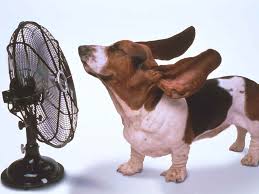Are Your Pets Changing the Climate?
08/09/17

Something to bark about: UCLA professor Gregory Okin recently published a study in which he calculated that the consumption of meat by domestic dogs and cats creates the equivalent of some 64 million tons of carbon dioxide per year.
It's a formidable figure, with nearly the same impact on climate as the annual emissions of 13.6 million cars.
“I like dogs and cats, and I’m definitely not recommending that people get rid of their pets or put them on a vegetarian diet, which would be unhealthy,” Okin said. “But I do think we should consider all the impacts that pets have so we can have an honest conversation about them. Pets have many benefits, but also a huge environmental impact.”
Okin found that dogs and cats are responsible for 25 to 30 percent of the US's total environmental impact from meat consumption. If Americans’ 163 million Fidos and Felixes were a country, this furry nation would rank fifth in global meat use, behind only Brazil, Russia, the US and China.
And that's just input. America’s pets also produce about 5.1 million tons of feces every year, roughly equivalent to 90 million Americans' analogous droppings. It's also equal to nearly all the trash produced in Massachusetts.
Of course, pets bring benefits, as well. They offer companionship, amusement and well-documented health advantages. Folks concerned with meat intake can always consider vegetarian pets, like birds or hamsters.
Further, the pet food industry says it's moving towards sustainability. It says it's promoting the reduction of overfeeding and is actively considering alternative sources of protein. But challenges remain.
“Maybe we could all have little ponies,” Okin said, perhaps only partly in jest. “We’d all get more exercise taking them for walks, and they could also mow the lawn."
The lawn upon which you enjoy your hot dogs.
--By Shoshanna Levy
